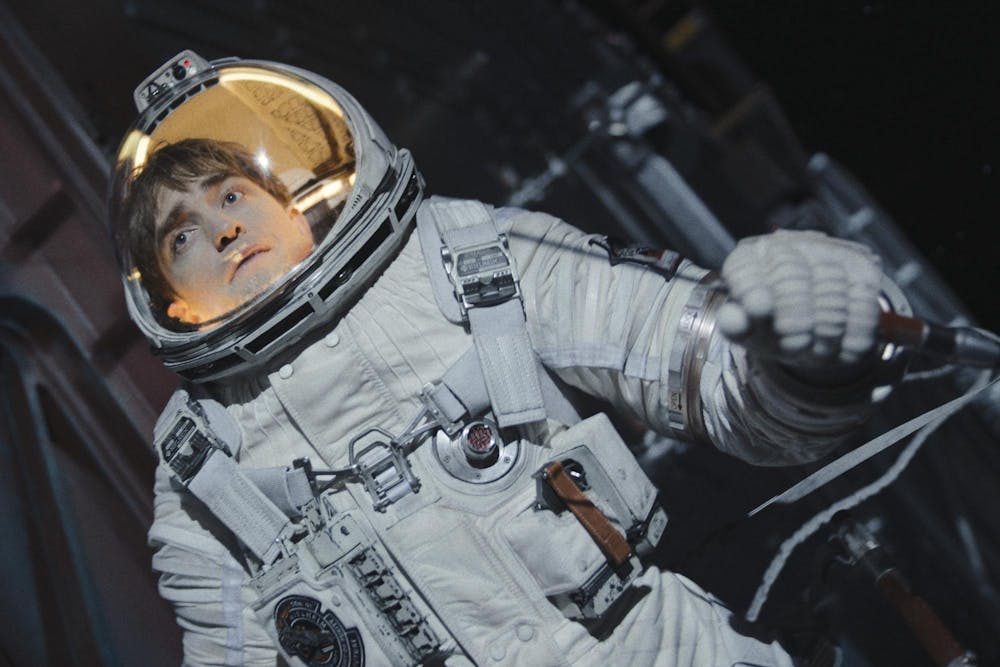In a note shared to X by Warner Bros. Korea on Feb. 24, director Park Chan-wook, known for films like “Oldboy” and “The Handmaiden,” shared his enthusiasm for fellow South Korean filmmaker Bong Joon-ho’s “Mickey 17.” He specifically praised Robert Pattinson’s performance:
“To the Academy members, please give Robert Pattinson the best actor and best supporting actor award,” one fan translated. “Give him both!”
It’s true that Pattinson’s performance here was a wonder. I’ve come to expect as such: we’re far removed from his days as a teenage heartthrob in the Harry Potter and Twilight franchises. Pattinson has cemented his status as a prestige performer in the independent circuit. What is clear, then, is that his performance is far and away the best part of “Mickey 17.”
If Bong’s project, coming six years after his tour de force “Parasite,” is anything, it’s deeply fun. Though a science fiction film at its core, “Mickey 17” has more in common with “Looney Tunes” or the work of Charlie Chaplin than it does epics like “Star Wars” or “Dune.” Pattinson’s performance, in which he often has to interact with himself and only himself, is no small feat and proves his prowess as both a dramatic and comedic actor. His ability to transform completely into a character, to convince you he’s someone else despite being such a recognizable figure, is astounding.
It’s somewhat of a letdown then that the film, as a whole, is really just fine. Of course, even Bong’s most okay project is better than most of the films hitting theaters at any given point. But it’s precisely because I’m aware of his artistic capability that I left “Mickey 17” wishing it was more.
Like Bong’s other films, “Mickey 17” assumes a decidedly progressive, anti-capitalist stance. It takes place in the year 2054, in a world where humanity is looking to colonize outer space. Mickey Barnes (Robert Pattinson), after a failed macaron business that gets him in hot water with a group of loan sharks, signs up for one of these colonizing expeditions as an “expendable” — that is, a worker who is meant to die and be reprinted ad nauseam. Every time the ship scientists need to test out an experimental vaccine or the effects of nuclear radiation, they turn to Mickey. And, for what it’s worth, it seems like Mickey doesn’t really mind his job either.
The title alludes to the fact we’re following the 17th Mickey, risen from the ashes of 16 before him. It’s clear what he represents: a worker who, in an absurdist, even dystopian, late-stage capitalist society, has yet to develop any form of class consciousness. He lets the capitalists heading the expedition — represented by Kenneth Marshall (Mark Ruffalo), a politician who exists somewhere between a Donald Trump and Elon Musk caricature — hurt him because, well, it’s slightly better than the capitalists back home hurting him.
What makes “Mickey 17” less effective than Bong’s other films in portraying this message is the fact it hinges so explicitly on specific contemporary political events. “Parasite” was fantastic in part because its themes, its story, was universal and, though definitely rooted in modern economic and political issues, even timeless. “Mickey 17” is enjoyable all on its own, nothing can change that fact, but Ruffalo’s Trump impression and Occupy Mars schtick will inevitably be much less effective when the current moment has blown over.
Another thing that hinders the messages the film is attempting to convey is the fact Bong seems so intent on spelling them out. There’s no need for it to be subtle — “Parasite” was anything but subtle, after all — but about halfway through the characters essentially perform monologue after monologue telling the audience what they’re supposed to glean from the film. It just feels unnecessary: we already know that the rich politician trying to colonize a planet by effectively mass slaughtering all of its natural inhabitants is bad, we don’t need to be told over and over again.
That’s all to say that my issues with this film lie in its script and its script alone. “Mickey 17” lends the audience a helping hand, which isn’t necessarily a bad thing in and of itself; the problem is the fact it never lets go, even when we no longer need assistance. It’s a tremendously straightforward approach that seems, if nothing else, a bit too easy for a director like Bong who, as we all know at this point, has an enormous level of talent. Beyond this, it’s also clear that the film specifically stumbles a bit in the last act, where the pacing goes awry and the need to wrap things up starts to take its toll. Unfortunately, it’s this final third of the film that’s, ultimately, the weakest.
I didn’t want to be so critical. I really did enjoy my time watching this, after all! And, as I said before, an okay Bong film is still a good film in the grand scheme of things. But there’s a genuinely fantastic project in here somewhere, and I’m only disappointed that I can’t say we already have it.






